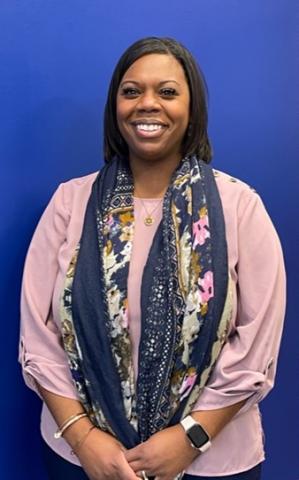Community Spotlight - Brittany Keys Anderson

Choose your path!
Brittany Keys Anderson is a hard working, determined person. One of five daughters of Wilford and Kim Keys of Lewisburg, Brittany felt a calling early in life to work with children. “I always knew that I wanted to work with children; however, I was not sure which route I wanted to take. I toggled between the ideas of being a pediatrician, social worker, or teacher. In college, I decided to take an education class to get an idea of the education field. When I walked into my first education class, I immediately knew that was the career path I wanted to take.” Brittany graduated from Concord University with a BS in Elementary Education and a MEd in Reading. She continued her educational pursuits earning an Ed.S., from Liberty University in Educational Leadership. She is now in the final stages of obtaining a EdD also from Liberty University in Curriculum and Instruction. “I know it is important to be a lifelong learner, and I realize that pursuing my own educational goals will help equip me with skills to be a better educator. We always hear that children are our future, and I feel it is my job to make sure I learn all that I can to help them.” Brittany has not let obstacles deter her from her dreams and is quick to give credit to people who have helped her along the way. “Many people may think they know my journey in life. However, only a few people know the obstacles that I have had to overcome to be in the position that I am in. I believe that is one of the reasons why I knew education was the career path I wanted to take. I wanted my students to know that regardless of what life throws at them, they can choose their path. We all have stories in life. Some are good! Some are bad! Regardless of which stories are shared, they make you the person that you are. There are lots of people I have encountered in life that have taught and helped me along the way. However, the two main people who have been my rocks throughout my entire life have been my parents. They were my first teachers, and they are still the ones I go to for support and advice.” According to the National Center for Education Statistics (NCES, 2012), of the 760 school principals in West Virginia, less than 1% are Black. Brittany talks about her role of principal as a woman of color. “I love my job, and I love my students! Being in this role means a great deal to me. When I was growing up, there were only a few Black teachers within the school system, and I never had a Black principal. I did not have my first Black teacher until I was in middle school. It is so important for our children to see people in positions that look like them. Representation matters! A child’s early experiences shape what they believe to be possible. We want all our students to feel that they can achieve any goal in life. That means our students must see people that look like them in certain positions to believe it is possible.”
Brittany believes in the power to change outcomes through encouragement, even outside the educational field. “I am passionate about what I do! I do not think there is necessarily anything specific that I do that is different from what other people do. I try to start each day with an uplifting spirit so that I can be a positive influence on others. I believe that we can help others in our communities by being caring and understanding. I work with a diverse population, and I strive to make sure that all my families feel that they are a respected and valued part of our team. Since we are a PreK-2 school, I know that many of our families first encounter with the school system starts at our level. If we can make them feel like they are a valued part of our school community, we know that this has the potential to have a positive impact on our entire community.”
Education is one of the key social determinants of health and Brittany has some advice to communities working to improve outcomes. “We must ensure that our children are being provided with opportunities to learn about other cultures. We also cannot be afraid to have conversations with our children about race and racial injustice. Our books in classrooms should be diverse, and we should spend time throughout the entire year embedding activities and literature that discuss and highlight other races and cultures. Students must see themselves represented in their classroom and within their communities. Our communities must be culturally responsive! We have to have conversations and be able to respectfully communicate with different cultures and backgrounds. We have to keep in mind that just because things have always been done a certain way, that does not mean that it is always right. We must listen and be reflective. Our children are always watching.”
U.S. Department of Education, National Center for Education Statistics, Schools and Staffing Survey (SASS), "Public School Principal Data File," 2011–12 Retrieved from https://nces.ed.gov/surveys/sass/tables/sass1112_2013313_p1s_001.asp
